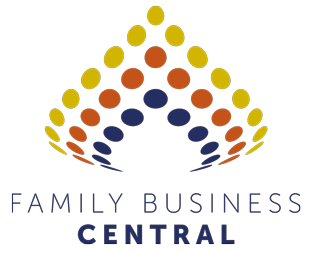
Developing a Next Generation Development Plan for the Family Business
To follow on from our previous blogs on succession, we wanted to talk in more detail about one of the key aspects of succession of leadership which is the Next Generation Development Plan (NGDP).
A Next Generation Development Plan is a document created for each member of the next generation who want to put their hat in the ring to take on a senior role within the family business. This is not just limited to the CEO/MD role. There are a number of other senior leadership roles within a business that require high level skills, expertise and knowledge.
While many family businesses talk of a Next Generation Plan and will discuss what needs to happen, it is useful to have a written plan put together that clearly outlines: what is required, who is doing what and what the expectations are. This provides clarity for the person going through the plan, as well as a level of transparency for the rest of the family and by doing so heads off a lot of potential family disagreement and conflict.
Getting the Next Generation ready and up to speed to be able to take on a senior role within the business is critically important to the succession process. By formally setting up a plan that everyone agrees and is aware of, provides a high level of transparency and helps manage perceptions of fairness across the family.
There are several core principles that all good plans are based on. Let’s look into them.
Merit
The most important principle is merit. For anyone in the family to take on a senior role in the business, they must demonstrate they have the skills, knowledge and aptitude to take on the role. The whole reason for the Next Generation Development Plan is to help family members develop these skills and knowledge. However, it must be clear from the beginning that if they can’t demonstrate the required skills and knowledge they can’t take on the role. This is the risk they take— they are given every opportunity to develop the skills but if, after a period of time (potentially a few years) they can’t demonstrate competence, then someone else needs to be selected who can.
This aspect of succession needs to be upfront and agreed by all members of the family and should be stated clearly in their Family Charter (you do have a Family Charter don’t you?). Opportunities are provided with as much support and help as possible, but at the end of the day, they have to demonstrate they have the skills and any roles within the family business can only be appointed on merit.
Outcomes
The Next Generation Development Plan needs to be based on behavioural outcomes that can be assessed as objectively as possible — bearing in mind that this can be a challenge at times. The assumption being that as soon as someone demonstrates they have the skills, they potentially can move into the role. This is in contrast to saying that we’ll be doing this for two years and then it will be finished. This is why we have often seen relatively young family members get quite responsible positions because they have demonstrated the skills. Instead of putting a time deadline in a Next Generation Development Plan, work on them being able to demonstrate the required skills. For some, this might be quite fast and it’s all over and done within a year, while for others it may take longer — we know of one that lasted for 8 years.
Skills Knowledge and Behaviour
These are the things we are looking to see someone demonstrate. However, there is often a range of different skills and knowledge. For example, there may be clear technical skills, e.g., accounting or finance or a marketing degree that needs to be acquired. At the same time, there may be a requirement that the person can develop solid working relationships with staff, management, suppliers and other key stakeholders. Often, if they can’t build these relationships, they are just not suited for the role. We know of one son coming into the business being told that if he could not win over the confidence of the senior team, there was no way he could take over the business. He did and has been an outstanding CEO.
Regardless of the type of skills and behaviour, it is important to outline in the document the type of skills and knowledge that the person needs to demonstrate. If it is formal qualifications, then it is talking about specific courses or learning, for example an MBA or a director’s course. For skills and knowledge, we need to be able to describe as clearly as possible using behaviourally descriptive language of what is required. Sometimes this is difficult as “winning the respect of the senior team” is not that easy to describe behaviourally. Whereas knowing a specific software package and running specific projects is far easier. Regardless, this needs to be as specific as we can make it.
Who does the Assessing?
This is an important question. Who is qualified and best suited to assess whether someone is ready? We have often suggested in the past that it is 1-2 family members who are involved in the business with a couple of non-family senior executives/managers. The key thing is for the assessment to be as honest and objective as possible.
Working in the Business or not
For many of the Next Generation, their development plan is part of the role they have within the business. This is useful as they learn huge amounts on the job and have access to senior people for mentoring and coaching. For those who are not in the business, there is an enormous number of skills and learning they can bring from other workplaces as well as formal educational qualifications they attain. When they come into the business, one of their first jobs will be to build solid working relationships.
Work outside of the business for a period of time
This is one of our core recommendations and we know a number of “Next Geners” who swear by this. They learned so much about how other businesses work and bring an enormous number of ideas and new ways of doing things back to the family business.
Mentoring
On the job mentoring is an incredibly powerful learning tool. We’ve seen this done by non-family executives with years of experience, chairs of boards who teach younger members of the Next Generation what is expected of them and, of course, outside specialists. They all work well and so there needs to be a clear outline in the plan defining who is going to do this.
As with all areas of succession, the earlier you start talking about, creating and explaining the Next Generation Development Plan to family, the better. This helps prevent and minimise conflict, creates clarity around expectations for family interested in working in the business and helps both the current and next generations prepare and plan for the succession process of their family business. All in all, the sooner the better.
To find out more about a Next Generation Development Plan and/or family businesses in general, please contact Philip Pryor on philip@familybusinesscentral.com.

